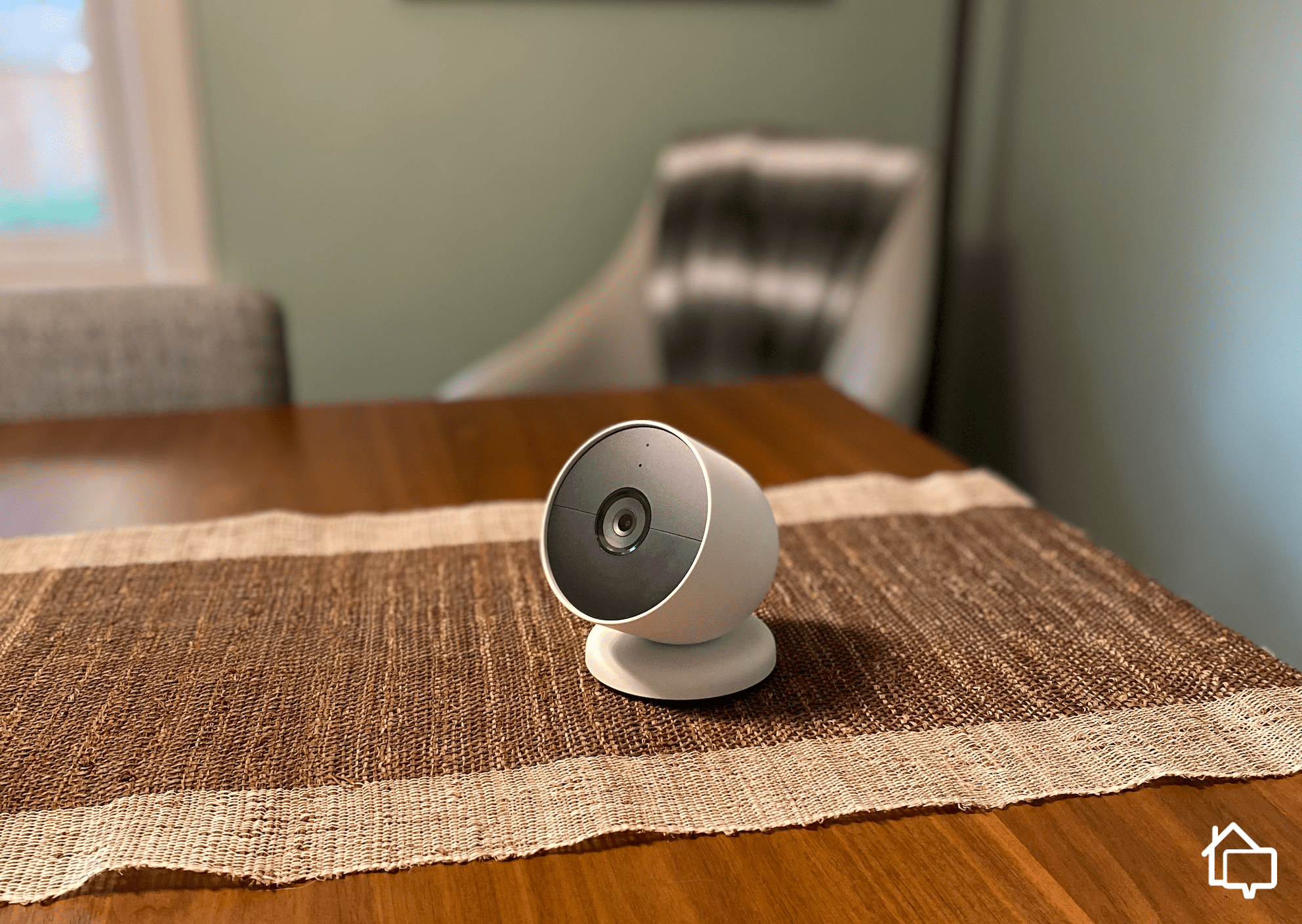When the internet goes out, your house shuts down. You can’t watch Netflix. You can’t attend Zoom meetings. But can you depend on your wireless home security system? Sometimes. Partly.
It depends on your home security system. I’ve tested all the top home security brands on the market. Without Wi-Fi, some systems work perfectly. Others not so much. (Looking at you, Eufy!)
The difference comes down to connectivity. Does your home security system connect to a cellular network by default (like Vivint), as a backup (like Ring Alarm), or not at all (like Wyze)? If the answer is “not at all,” sorry. You will lose key features in an internet outage. But if your home security system comes with cellular backup, it will stay up and running.
What are the best wireless home security systems to depend on during an internet outage? Which features stop working and which keep going? Why is the internet so important for home security? We’ll cover all that and more below.

ADT Wireless Video Camera
How Wireless Home Security Really Works
Think of a wireless security system like a team of guards keeping watch over your property. Each guard (i.e. device) can radio back to base (i.e. base station) if they spot something wrong. Base can send the commander (that’s you!) an urgent message. As long as comms are online, of course.
That’s pretty close to how a SimpliSafe security system works. Contact sensors send information to the base station via radio. The Base Station sends you information via Wi-Fi, which is just another radio frequency.
Did You Know? A savvy intruder could block the frequencies your devices use to communicate. In 2019, the YouTuber LockPickingLawyer bypassed SimpliSafe’s sensors with a $2 radio 1emitter.[/citatino] Thankfully, SimpliSafe has shored up its security protocols since then.
What happens if your alarm is tripped while the Wi-Fi is out? If you have the most basic SimpliSafe plan, not a whole lot. No Wi-Fi means no notifications, so you won’t get a mobile alert. Streaming takes data, so no live security footage either.2
The news isn’t all bad. An internet outage doesn’t prevent contact sensors from sending radio signals to the base station. If your system was already armed when the outage occurred, an open door should still set off the siren. In other words, you may still have a basic alarm.
If you sprang for a SimpliSafe professional monitoring plan, it’s a different story. Your subscription includes cellular failover. When the internet goes out, LTE service switches on. That means comms are online. Your “guards” and “base commander” can alert you if there’s a problem.
Other wireless security systems work in essentially the same way. Some use cellular data by default and others don’t have a cellular backup at all, but all use wireless data transmission to communicate.
Will Your Wireless Security System Work Without Wi-Fi?
Science is amazing and radio waves are neat, but let’s cut to the chase: Will your home security system work without Wi-Fi?
The short answer is: Probably, but not necessarily. Most wireless home security systems on the market run on Wi-Fi with a cellular backup option. Surprise, surprise: That option usually costs extra. The Ring Alarm home security package is a typical example. When you drop $200 on a Ring Alarm kit, it includes only one month of free cellular failover. After that, you have to spend $20 per month for LTE backup.3
There are exceptions. (Don’t worry, these are good exceptions.) A Cove security package, for example, includes cellular connectivity by default. Its devices don’t connect to Wi-Fi, which means you never have to worry about an internet outage.
There are also bad exceptions. (You can worry a little now.) Some budget providers offer no cellular failover whatsoever. Wyze costs less than the other guys, but it also loses almost all functionality in an internet outage. That’s one reason our Wyze review was more critical than our Cove review.
Did You Know? Starlet and scientist Hedy Lamarr helped invent frequency hopping, the technology that led to modern Wi-Fi.4 OK, no more science — for real this time.
| Security systems | SCellular backup |
|---|---|
| Abode | Yes, with Abode Pro plan |
| Arlo | Yes, with Safe and Secure Pro |
| Cove | Yes |
| Eufy | No |
| Ring Alarm | Yes, with Ring Protect Pro |
| SimpliSafe | Yes, with Standard Monitoring or Fast Protect |
| Vivint | Yes |
| Wyze | No |
Which Security Features Work Without Wi-Fi?
Did you just find out your security system has zero cellular connectivity? My condolences. On the bright side, some devices and features should still work in an internet outage.
- Home security cameras with local storage space, or cellular connectivity, such as the Arlo Go, work just fine without Wi-Fi.
- Smoke alarms — smart or otherwise — don’t need an internet connection to warn you about a fire.
- Motion-activated floodlights are a cheap, effective, no-internet-required way to deter burglars.
- Non-Wi-Fi smart locks, as the name suggests, don’t require Wi-Fi.
- Basic alarm capabilities, possibly. Most wireless contact sensors send information to the hub over sub-2.4 GHz radio waves whether the Wi-Fi is online or not. That means the alarm may still work in an internet outage, but don’t count on it. You may not be able to arm your system without Wi-Fi. And not all security systems work the same way. Double-check with your security provider to find out whether your contact sensors and siren can still communicate without Wi-Fi.
Most of your home security system’s features won’t work without a network connection. That means no controlling the system in-app, no professional monitoring, and no live security camera footage.

ADT Wireless Camera
How Do You Know If Your Wireless Security System Is Offline?
Most major players, including ADT, Vivint, Arlo, Ring, SimpliSafe, Abode, and Wyze, will notify you if an internet outage takes them offline. The notifications can get a bit annoying if your Wi-Fi cuts in and out several times in a row.
>> Read More: Ring vs. Abode
How to Stay Safe When the Internet Cuts Out
When the Wi-Fi is off, you feel naked. Helpless. Afraid. (Just me? OK.) Especially when your home security system is offline. But there are plenty of things you can do to stay safe without an internet connection. Here’s a selection.
Install a Cellular Home Security System
An ounce of prevention is worth a pound of cure. Choose a home security system that doesn’t depend on Wi-Fi in the first place. Opt for a cellular-first Vivint package or spring for Arlo’s cellular backup subscription. Either way, you’ll have one less thing to worry about when you trip over that router.
Fix Your Wi-Fi
Speaking of tripping over routers, have you considered simply fixing your Wi-Fi? Check your cables. Turn your router off and on again. Update your router. Once you’ve run through the list, you may not have an internet outage anymore.
Connect to Your Mobile Hotspot
Chances are, you have a Wi-Fi router in your pocket. Turn on your phone’s mobile hotspot and connect your devices to it.
Pro Tip: iPhone mobile hotspots use 5 GHz frequency by default. Most home security devices run on 2.4 GHz. Turn on the “Maximize Compatibility for Personal Hotspot” setting to make the switch.5

SimpiSafe’s new wireless indoor security camera on my mantle.
Stay Safe Like It’s 1899
There are steps you can take to protect your home that don’t require electricity, let alone a cellular network. Get a dog. Turn on the lights. Put up a fake security system sign. They may not be as effective as a fully functional alarm, but these security measures can help.
The Takeaway
You wouldn’t have to worry so much about an internet outage if you had a hardwired home security system. Does that mean you should exchange your Ring Alarm for ADT? Not necessarily.
Pro Tip: Internet outages shouldn’t be the only reason you choose a wired option, but if you’re already on the fence, the added reliability could make it a good choice. Check out our list of the best hardwired home security systems.
Wireless home security systems have lots of advantages. They’re affordable, they’re easy to install, and — shout-out to our apartment-dwelling readers! — they’re renter-friendly. Our favorite home security systems for renters are wire-free.
The fact that wireless systems are vulnerable to internet outages is a big, fat disadvantage to be sure, but there are ways to mitigate it.
If you get stuck with a Wi-Fi–only wireless system, you can still keep your home safe in an internet outage. Start with the basics: Keep your doors locked, lights on, and security signs posted. Then try to get your internet back up and running. Restart your router and power on your mobile hotspot. Your internet outage could be just a blip.
Better yet, choose a home security system that makes internet outages no big deal. Avoid systems that don’t offer cellular backup. Consider Vivint, Cove, and Alder packages instead. They’re fast, functional, and cellular-first. If you prefer Arlo, Ring, or SimpliSafe, pay a little extra every month for LTE backup. That way, your team of electronic sentries can always communicate with you — and vice versa.
>> Read About: Vivint Smart Home Security Review





